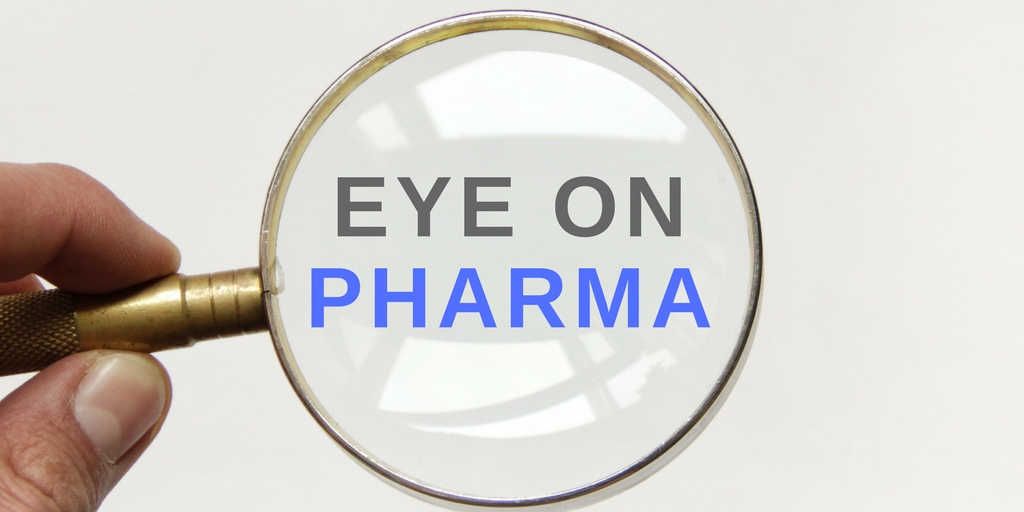
- Bone Health
- Immunology
- Hematology
- Respiratory
- Dermatology
- Diabetes
- Gastroenterology
- Neurology
- Oncology
- Ophthalmology
- Rare Disease
- Rheumatology
Eye on Pharma: Coherus Offloads Cimerli; Celltrion Files for CT-P47; Alvotech Shares Denosumab Results
Coherus Biosciences has sold its ranibizumab biosimilar (Cimerli) to Sandoz; Celltrion has completed its biologics license application filing for its tocilizumab biosimilar (CT-P47); Alvotech shares positive pharmacokinetic results for its denosumab biosimilar candidate.

Coherus Biosciences has sold its ranibizumab biosimilar (Cimerli) to Sandoz; Celltrion has completed its biologics license application (BLA) filing for its tocilizumab biosimilar (CT-P47); Alvotech shares positive pharmacokinetic results for its denosumab biosimilar candidate.
Coherus Biosciences Offloads Cimerli
Coherus shared that it has entered into an agreement with Sandoz to divest Cimerli (ranibizumab-eqrn), the first and only interchangeable ranibizumab biosimilar. As a result, Coherus will receive an upfront, all-cash consideration of $170 million plus a subsequent amount for Cimerli product inventory, subject to customary working capital adjustments at the closing date.
The divestiture included the BLA for Cimerli, sales and select field reimbursement teams, current product inventory on hand, and access to proprietary commercial software.
“Since entering the ophthalmology market in 2022, we have gained strong market share and created significant value in a noncore therapeutic area by leveraging our buy-and-bill commercial expertise. We believe it is prudent to now monetize these noncore assets to pay down debt, reduce interest costs, and take the opportunity to focus on our core therapeutic area, oncology,” said Denny Lanfear, chairman and CEO of Coherus. “Additionally, this divestiture will allow us to reduce our headcount and overhead costs, enhancing our sustainable and growing oncology business.”
Current oncology assets owned by Coherus include biosimilar Udenyca (pegfilgrastim-cbqv) and innovator Loqtorzi (toripalimab-tpzi). Coherus said that the deal for Cimerli is expected to close during the first half of 2024, subject to certain closing conditions and approvals.
Celltrion Files Application for Tocilizumab Biosimilar
Celltrion USA has disclosed that it submitted a BLA to the FDA for CT-P47, a tocilizumab biosimilar candidate referencing Actemra.
The submission was based on positive phase 3 clinical trial results that demonstrated comparative efficacy, pharmacokinetics, safety, and immunogenicity between the biosimilar and the originator in patients with moderate to severe active rheumatoid arthritis with inadequate response to methotrexate up to 52 weeks.
"The submission of CT-P47 for review is an important step toward providing patients with rheumatoid arthritis a more accessible avenue to treatment for conditions that present such a significant disease burden," said Thomas Nusbickel, chief commercial officer at Celltrion USA. "We plan to lead the market by establishing a diverse product lineup in the autoimmune disease market in the US. We will continue to actively cooperate with the FDA's review in an effort to bring this new treatment option to people living with rheumatoid arthritis as soon as possible."
The reference product is indicated for moderate to severe rheumatoid arthritis in adults as well as juvenile idiopathic polyarthritis and systemic juvenile idiopathic arthritis. Tocilizumab is a recombinant humanized monoclonal antibody that acts as an interleukin-6 receptor antagonist. Celltrion developed CT-P47 to have both intravenous and subcutaneous administration routes.
Alvotech Shares Positive Results for Denosumab Biosimilar
Alvotech has announced that phase 1 comparative trial for its denosumab biosimilar candidate (AVT03) produced positive results regarding pharmacokinetics, safety, and tolerability compared with the originator (Prolia/Xgeva).
“We are very pleased with the progress in our AVT03 program. This milestone, and recent positive top-line results from other clinical studies, clearly demonstrate our capabilities and the excellence of Alvotech’s biosimilars development platform,” said Joseph McClellan, PhD, Alvotech’s chief scientific officer.
Prolia is used to treat osteoporosis in postmenopausal women and bone loss in adults at risk of fractures. Xgeva, another form of denosumab, is indicated to prevent skeletal-related events in adults with advanced malignancies in the bone and to treat giant cell tumor in bone. In the 12 months leading up to September 30, 2023, global sales for Prolia and Xgeva exceeded $6 billion, according to the manufacturer's quarterly reports.
Newsletter
Where clinical, regulatory, and economic perspectives converge—sign up for Center for Biosimilars® emails to get expert insights on emerging treatment paradigms, biosimilar policy, and real-world outcomes that shape patient care.
259 Prospect Plains Rd, Bldg H,
Cranbury, NJ 08512
All rights reserved.